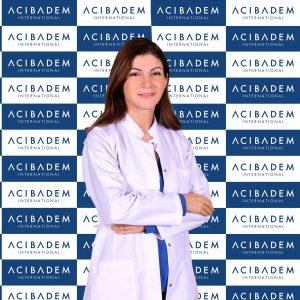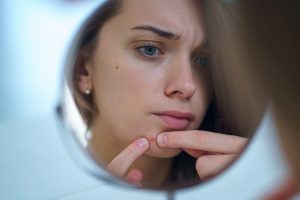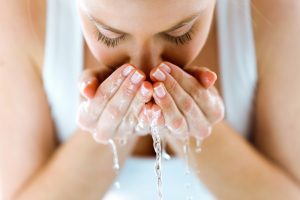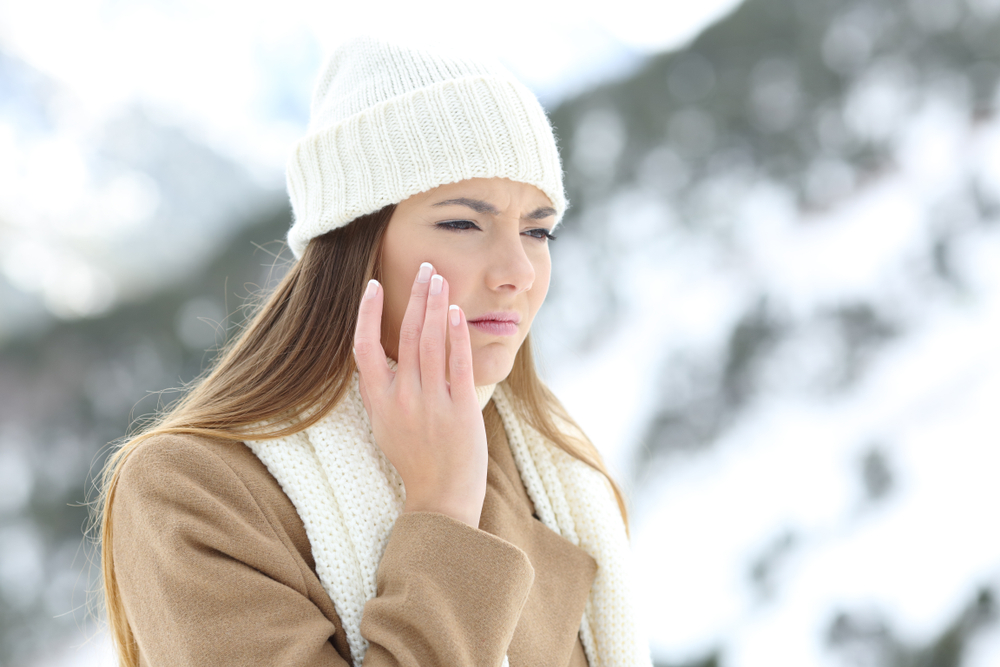 Dermatologist Dr. Hülya Sağlam, Acıbadem International Hospital told about 3 skin diseases that are common on the face in winter and gave important suggestions and warnings.
Dermatologist Dr. Hülya Sağlam, Acıbadem International Hospital told about 3 skin diseases that are common on the face in winter and gave important suggestions and warnings.
Factors such as cold weather in winter, wind, air pollution, spending more time indoors, drinking less water and decreasing sweating can cause significant damage to our skin. These factors can lead to exacerbation of dryness on the skin, resulting in the development or exacerbation of various skin diseases. Dermatologist Dr. Hülya Sağlam also pointed out that the masks we use to protect against Covid-19 infection and the intense stress we experience during the pandemic process are effective in the more frequent occurrence of some skin diseases. We come across it more frequently. Rose and acne diseases are also among the diseases that increase or increase in severity this season. Therefore, it is very important to take a series of measures to prevent problems such as redness, cracking, itching, scaling and deep scars that can reduce the quality of life on the skin.
Seborrheic Eczema
Cold weather, moisture loss, wind, long-term baths with hot water… In the winter months, these factors in our face area, which is in contact with the air the most increase seborrheic eczema complaint characterized by redness, itching, and scaling. Seborrheic eczema, known as sebaceous eczema in the community, is common in the face area as well as the scalp and upper chest area. Dermatologist Dr. Hülya Sağlam states that this disease is a chronic disease that recurs under the influence of masks, cold weather, stress, some foods and many factors, and she said, “It is very important to improve the quality of the skin so that seborrheic eczema does not get worse.”
What should we do?
- If possible, do not go out in cold and windy weather. If you must, make sure to cover your face as much as possible.
- Moisturize your skin regularly. The masks we use to protect from Covid-19 make the oily cream even more oily. Therefore, choose non-oily moisturizing creams.
- Do not apply alcohol lotion to your skin after using aftershave to avoid irritation.
- In line with your doctor’s recommendation, use creams and shampoos special for seborrheic eczema from pharmacies.
- Do not use cortisone creams as they damage the skin.
Laser, light systems, mesotherapy
To improve the quality of your skin, you can benefit from some methods of laser and light systems that moisturize it. In addition, the mesotherapy method, which is performed by injecting products containing hyaluronic acid and peptide under the skin with tiny needles, is also effective in moisturizing your skin.
 Acne
Acne
Commonly known as ‘pimples’, acne is a chronic skin disease that can leave scars. There are many causes of acne formation. In addition to hereditary and hormonal factors, factors such as not paying attention to hygiene, certain foods and excessive moisture of the skin can also cause acne. Dermatologist Dr. Hülya Sağlam, pointing out that excessive moisture on the skin due to the use of masks during the pandemic process, exacerbates acne more, and said, “When wearing a mask, applying concealer products such as foundation and make-up to the skin can exacerbate the acne problem, since it prevents the skin from breathing.”
Very successful results are obtained from the medical drugs used in the treatment of acne. In addition, it is possible to get rid of acne and its scars with laser and light systems. According to the skin type, methods such as fractional laser, plasma energy, thulium laser and dermapen are used.
What should we do?
- Pay attention to hygiene and clean your skin regularly.
- Change your mask every four hours immediately if it becomes too moist or wet.
- Do not use products that close the skin pores, such as foundation, while wearing a mask, and avoid wearing make-up.
- Do not consume fatty foods.
Carbon peeling, needle radiofrequency
Carbon peeling is a method used in the treatment of acne and the removal of redness after it. Carbon peeling, which can be applied to all skin types, provides a permanent effect thanks to the absence of crusting on the skin after the procedure, the destruction of microorganisms by heat and the reduction of oil glands.
Needle radiofrequency is a method performed by applying energy to the skin in line with its needs. It triggers the production of collagen and elastin in the subcutaneous layer. It contributes to the reduction of acnes with the heat applied to the skin and to the lightening of the scars with the synthesis of collagen and elastin.
Rosacea (Rose disease)
Known as “rose disease” in the community, Rozacea is another disease that increases in frequency and severity during the winter months. Redness, burning, stinging sensation on the face, prominent veins and acne-like formations are the most common problems in Rosacea disease. Dr. Hülya Stating that it is necessary to pay attention to the skin as much as possible in this disease, Sağlam said, “While antibiotics are beneficial in the treatment of this disease, which creates a red appearance on the face, isotrethionine is effective in severe and recurring conditions. The most important factor that causes rosacea is the use of cortisone preparations on the face for a long time. Therefore, cortisone products should never be used without consulting a physician.
What should we do?
- Do not use products that irritate the skin and contain alcohol.
- Avoid topical cortisone creams.
- Do not go out as much as possible in cold and hot weather.
- Avoid hot drinks and foods. Do not eat spicy foods and chocolate.
- Do not consume alcohol and caffeinated beverages.
- Prefer creams and gels containing meronidazole.
- Do not overdo the exercises.
- Avoid stressors as much as possible.
- Use sunscreen products with a factor of at least 30 against UVA and UVB rays in your daily care. Prefer products with higher protection factor in summer.
 Laser, mesotherapy
Laser, mesotherapy
Stating that in the phase where the capillaries are dense, pulse dye laser, gold toning laser, IPL, NDYAG vein laser are applied, Dermatologist Dr. Hülya Sağlam, said, “These applications are done as 3 sessions per month. In addition, moisture is provided to the skin with the mesotherapy method. Thanks to the fact that these methods also strengthen the vessel walls, cracking of the capillaries can be prevented.”



